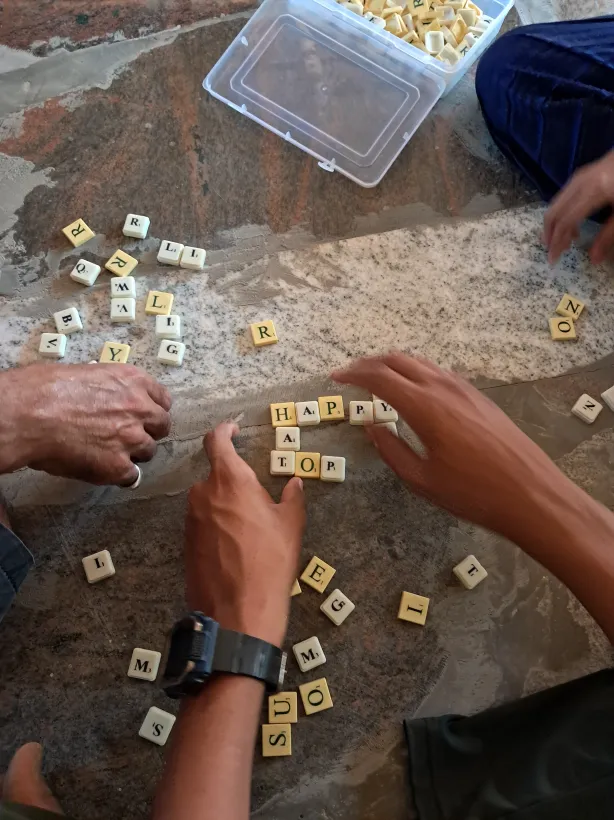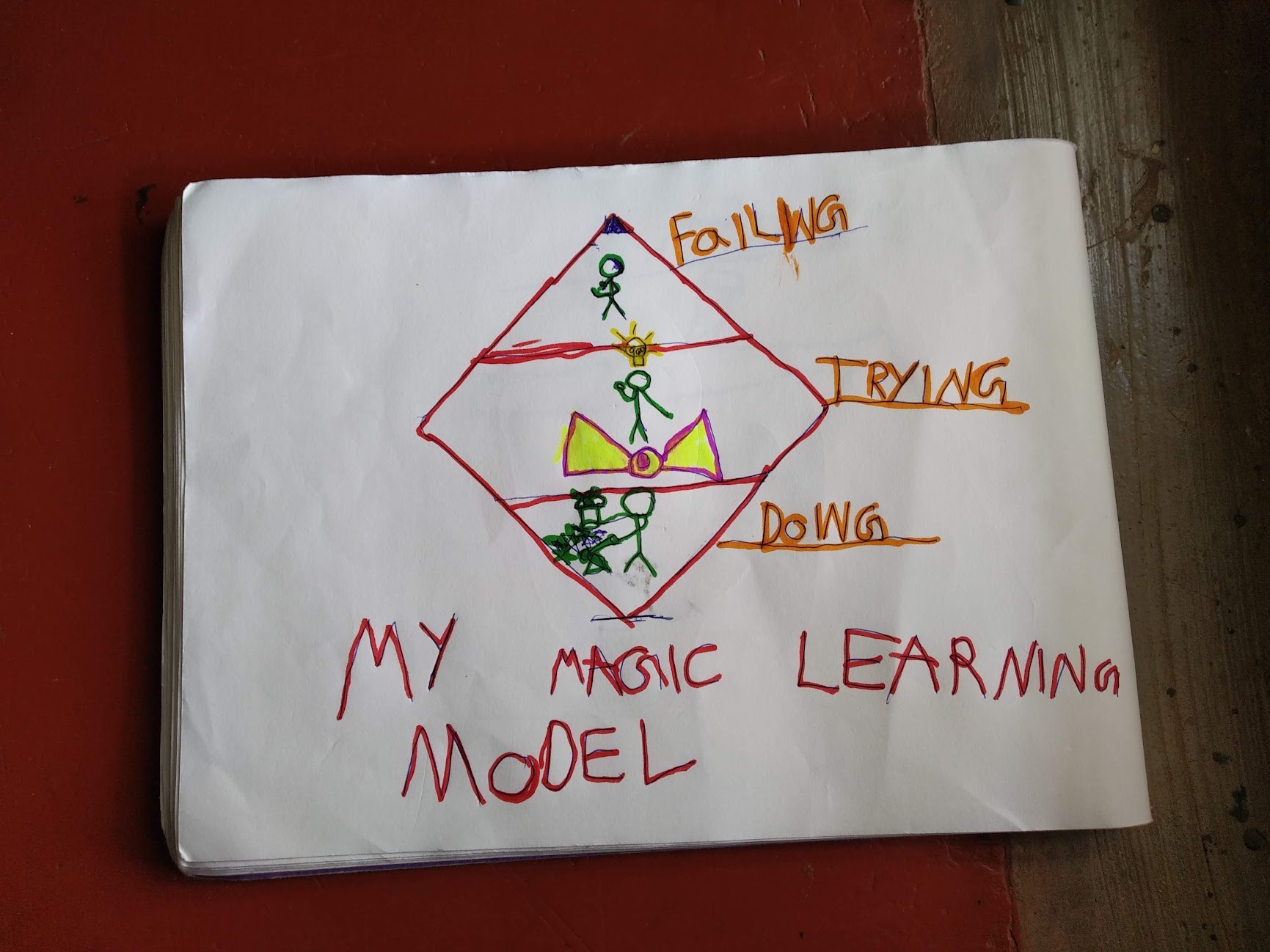Our Open Learning journey is full of fun, surprises, and challenges. My biggest challenge as a parent is dealing with my internal conflict. It is like walking on a forked path always.
One path leads to the safe environment of the “known” and family/friends. Another path is traversing a beautiful “unknown”. My mood for the day is often decided by which path I am taking today.
My expectation from my child changes completely when I try to follow the rhythms of the road less traveled. I am more open to everything he says and does. I observe him without judgment and accept all the ideas, thoughts, mistakes, and achievements with equanimity. There are days when I take the path of familiarity. This is when I find everything daunting. All I see is his shortcomings compared to other children of his age. All the children of my extended family take the driver’s seat of my mind. On those days he and I have a tough time with each other. All conversations end up being arguments and sulking. I wonder why he is not able to do this or understand that.

Tables turned
A few days back he asked me to try a new video game he downloaded. I am not at all a gamer. But I listened to him and genuinely tried playing. To my surprise, I found it beyond my ability to control the mouse and keypad, that I have used as a champion for many years. All of a sudden, I felt as if someone handed over a new device to me. Interestingly, my son uses the laptop as a rock star when he plays games, but he fumbles with keys when he needs to type something on the laptop. It is always a huge effort for both of us to do certain activities especially where he fumbles.
Now the tables have turned. He saw me struggling with the game. He took a pause and guided me calmly to explain how controls work. I failed again. He said keep trying and you may reach the next level. He was disappointed, but neither did he create any fuss about it nor lecture me about my below-par gaming skills.
My son is learning to play Tennis and wishes to pursue it professionally. Lately, he has wanted me to play Tennis with him. Initially, I resisted because I never played Tennis in my life. Moreover, I was skeptical about my energy levels. I sulked, created a fuss, and rejected the idea vehemently. He persuaded me and we started playing. Tennis is a game of skill, technique, and strength. I am good at strength but not in the other two aspects. Every time I played with him I floundered. I was in stress and nervous. My son lost his cool at times and handled me well other times. I genuinely put effort into learning it. It took long for me to return the ball twice or thrice in a row.
How we deal with Learning Incompetency
I often reflect on these two incidents. Invariably, I compare how I see my son when he tries to learn something new or something he is not interested in.
I’m not interested in online video games. Tennis interests me, but I’m a slow learner.
I could recall many incidents about my son when he did something without interest or took time to learn something. He managed my learning incompetency very differently from how I had imagined him to.
- I start judging him for everything. He focused on the problem at hand
- I connected everything with the future, he paid attention to the problem at that moment
- He gave short feedback on the exact mistake, I would lecture him with all my knowledge
- He did not associate my incompetency with my other work, I will find the connection between his incompetency and other things he does.
- Deep in my heart I would also think about others and compare him. He focused on me.
- Most importantly he enjoyed me learning something from him, I took it as a responsibility on me
Open learning is not about teaching but about being learners together. It is about the fun and joy learning brings. It removes the barrier between teaching and learning. Open learning is beautiful and I am glad we took the other path on fork. Also, check this article to understand the beauty of open learning.
